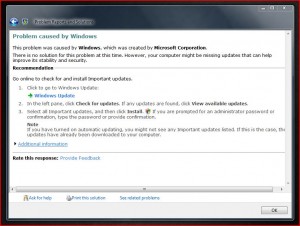OUR financial catastrophe, like Bernard Madoff’s pyramid scheme, required all sorts of important, plugged-in people to sacrifice our collective long-term interests for short-term gain. The pressure to do this in today’s financial markets is immense. Obviously the greater the market pressure to excel in the short term, the greater the need for pressure from outside the market to consider the longer term. But that’s the problem: there is no longer any serious pressure from outside the market. The tyranny of the short term has extended itself with frightening ease into the entities that were meant to, one way or another, discipline Wall Street, and force it to consider its enlightened self-interest.
The credit-rating agencies, for instance.
Everyone now knows that Moody’s and Standard & Poor’s botched their analyses of bonds backed by home mortgages. But their most costly mistake — one that deserves a lot more attention than it has received — lies in their area of putative expertise: measuring corporate risk.
Over the last 20 years American financial institutions have taken on more and more risk, with the blessing of regulators, with hardly a word from the rating agencies, which, incidentally, are paid by the issuers of the bonds they rate. Seldom if ever did Moody’s or Standard & Poor’s say, “If you put one more risky asset on your balance sheet, you will face a serious downgrade.”
The American International Group, Fannie Mae, Freddie Mac, General Electric and the municipal bond guarantors Ambac Financial and MBIA all had triple-A ratings. (G.E. still does!) Large investment banks like Lehman and Merrill Lynch all had solid investment grade ratings. It’s almost as if the higher the rating of a financial institution, the more likely it was to contribute to financial catastrophe. But of course all these big financial companies fueled the creation of the credit products that in turn fueled the revenues of Moody’s and Standard & Poor’s.
These oligopolies, which are actually sanctioned by the S.E.C., didn’t merely do their jobs badly. They didn’t simply miss a few calls here and there. In pursuit of their own short-term earnings, they did exactly the opposite of what they were meant to do: rather than expose financial risk they systematically disguised it.
This is a subject that might be profitably explored in Washington. There are many questions an enterprising United States senator might want to ask the credit-rating agencies. Here is one: Why did you allow MBIA to keep its triple-A rating for so long? In 1990 MBIA was in the relatively simple business of insuring municipal bonds. It had $931 million in equity and only $200 million of debt — and a plausible triple-A rating.
By 2006 MBIA had plunged into the much riskier business of guaranteeing collateralized debt obligations, or C.D.O.’s. But by then it had $7.2 billion in equity against an astounding $26.2 billion in debt. That is, even as it insured ever-greater risks in its business, it also took greater risks on its balance sheet.
Yet the rating agencies didn’t so much as blink. On Wall Street the problem was hardly a secret: many people understood that MBIA didn’t deserve to be rated triple-A. As far back as 2002, a hedge fund called Gotham Partners published a persuasive report, widely circulated, entitled: “Is MBIA Triple A?” (The answer was obviously no.)
At the same time, almost everyone believed that the rating agencies would never downgrade MBIA, because doing so was not in their short-term financial interest. A downgrade of MBIA would force the rating agencies to go through the costly and cumbersome process of re-rating tens of thousands of credits that bore triple-A ratings simply by virtue of MBIA’s guarantee. It would stick a wrench in the machine that enriched them. (In June, finally, the rating agencies downgraded MBIA, after MBIA’s failure became such an open secret that nobody any longer cared about its formal credit rating.)
There’s lots more in that vein, including some pretty scarifying stuff about the SEC.
We will know how serious a president Obama will be when we find out what he proposes to do about regulation of the financial services industry. The current system is comprehensively broken. It’s incapable of doing what needs to be done if banking is to be kept prudent and honest. The political temptation will be to fiddle with it (as Gordon Brown will probably do). But it really needs to be re-engineered from the ground up — by people who understand systems as well as banking.


